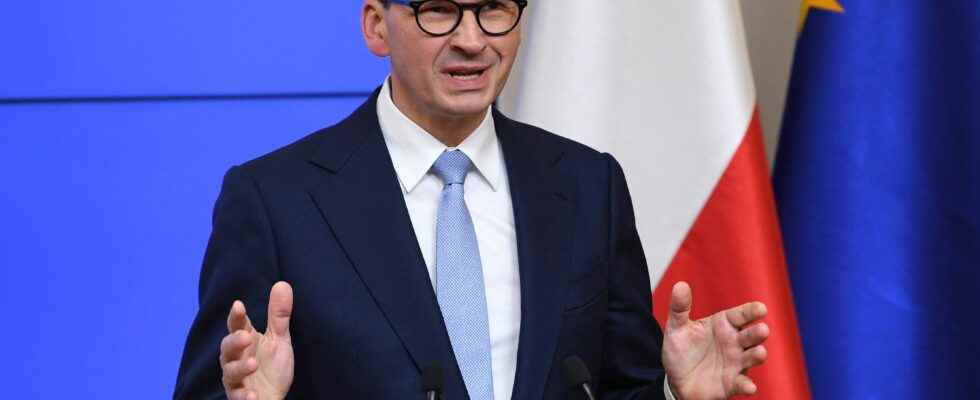It was minus one. Germany, under the pretext of not being accused of escalation and co-belligerence by the Kremlin, almost opened a conflict with one of its main allies, Poland. It was less of a problem for Olaf Scholz, by dint of caution and procrastination, to dig deeper into the new fault line already sketched out in Europe: between, on the one hand, Russia’s neighboring countries, familiar with its messianic imperialism and which do not conceive no victory for Ukraine without the defeat of Vladimir Putin, and on the other the more Western countries, including Germany and France, who would like Ukraine’s victory to be “at the same time” an acceptable defeat by the aggressor – both considering that their option is the only condition for the security of Europe.
The question of the Leopard 2, the German battle tanks claimed by Ukraine and whose Germany was blocking both the delivery and their re-export by third countries including Poland, had become a point of tension in the war, at the dawn of a vast Russian counter-offensive announced in the spring.
Scholz caught in a vice
Under mounting pressure from Eastern Europeans, Ukrainians and even Greens and Liberals in his own coalition exasperated by his indecisiveness, and after coming to terms with Washington, the Social Democratic Chancellor could not go on forever to kick into touch. On January 25, he confirmed that Germany would supply kyiv with 14 Leopard 2 tanks from Bundeswehr stocks and give the green light to countries with these tanks. Again, it was less than one: a day earlier, Polish Prime Minister Mateusz Morawiecki had sent him a formal request for authorization, while announcing that the country would override a possible refusal. Europe did not need this internal conflict, observed by Putin with as much attention as expectation.
Olaf Scholz had clearly not realized how much the war in Ukraine had upset the balance within the European Union, to the point that Poland could now consider doing without Germany’s consent and forming an alliance with other States. members to decide on the use of the Leopards they had bought from him. He suddenly found himself caught in a vice within his coalition, and at odds with his historic discourse on the “Zeitenwende” (change of era).
In front of the Bundestag, the day after the Russian invasion, he notably announced the turning point in German military policy. But its two biggest neighbors and partners, France and Poland, did not see the expected colors. In the west, France became angry with a German project for an anti-missile shield concocted without it, incompatible with the shared objective of “European sovereignty”. In the East, Poland notes that beyond its big speeches, the first European economic power is always timorous to find itself in the front line on a major question concerning the security of Europe. Although Germany is one of the main providers of humanitarian and military aid to Ukraine, Scholz’s restraint on the Leopards served as a symbol and a test of Germany’s will as the nation most powerful in Europe, to show its leadership and its solidarity.
Poland, soon the main army of Europe
Meanwhile and slowly, Poland is gaining power in Europe. The nationalist-conservative government in power has skillfully settled its conflict with Brussels by reversing some of its violations of the rule of law. It is investing massively in defence, already devoting 2.4% of its GDP to it, beyond the 2% target set by NATO, and planning to increase to 4% in 2023, with a program of modernization of on an unprecedented scale.
The former Warsaw Pact country that has become a member of NATO, which also has one of the best growth rates in Europe, has announced that it has concluded a giant arms contract with South Korea. If France is since Brexit the only power in the EU equipped with nuclear weapons, Poland is on the way to becoming its main army, while Ukraine, which will join us one day, will be the most efficient and the most trained. At a time when France and Germany – the two major economies, the raison d’être and the indispensable tandem of the Union – are celebrating the 60th anniversary of the Elysée Treaty which sealed their friendship, they are letting slip towards the is the political center of gravity of the new Europe.
